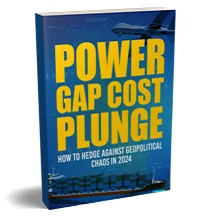
Good economic data is bad for stocks. For it means the Fed will begin increasing rates sooner rather than later. Higher rates are bad for the stock market because of increased borrowing costs.
Nonetheless, bad economic data is also bad for stocks. For it means the economy could be slowing into recession. Declining corporate earnings and contracting growth should push stock prices down.
The sweet spot, however, is in the middling. Moderate growth means corporate earnings should hold. It also means the Fed will delay raising rates…which furthers Wall Street’s glee.
This is simply absurd, we know. But just because it is absurd doesn’t mean we should deny it. We may not understand it, we may not agree with it. Yet it is happening all the same. Who are we to resist it?
Six Year Trend
This logic was fully evidenced last Friday. The Bureau of Labor Statistics reported 223,000 new jobs were created on April and Wall Street went bananas. The Dow ran up 267 points – a full 1.49 percent – on the news.
While this wasn’t a great employment report…it wasn’t a bad one either. The new jobs brought the unemployment rate down to 5.4 percent. At the same time the labor force participation rate rose by a tenth of a percent to 62.8 percent, just off its 37-year low.
The BLS report also showed meager wage growth. Workers are earning about 2.2 percent more than they were 12 months ago. Indeed, more is better than less. Still, this isn’t the type of wage growth that improves the lives of the vast majority.
Though investors celebrated the news. They believe they’ll continue to have their cake and eat it too. Moderate employment growth, first quarter GDP growth of 0.2 percent, and a CPI below the Fed’s 2 percent target, could push out a Fed rate increase until next year.
With a zero bound federal funds rate and ongoing monetary easing out of Europe and Japan, why shouldn’t stocks continue to rise? Naturally, we could come up with plenty of reasons. But the six year trend, and the Wall Street glee, says stocks will go up even further.
Whatever your leanings are, be they bullish or bearish, a moment of honest contemplation is warranted. The economy and the stock market don’t make a heck of a lot of sense these days. Here’s some context for today’s market…
Bear Witness to the Madness
Something momentous is going on. Stock prices have been disconnected from the real economy by an abundance of Federal Reserve credit. By historical standards they’ve also become very expensive. The current Shiller price earnings ratio, based on average inflation adjusted earnings from the previous 10 years, is at 27.22. The historic median for the Shiller PE Ratio is about 16.
This ratio has only been higher at two times over the last 130 years: (1) Just prior to the 1929 crash, and (2) Just prior to the dot com bust in 2000. Naturally, there are only two ways for today’s doublewide ratio to come back in line. Either corporate earnings must rise or stock prices must fall.
Of course, stock prices could continue to become more expensive in the short term. In fact, on January 1, 2000, the Shiller price earnings ratio hit 43.77…just before the market crashed. Who’s to say prices won’t become even greater this time around?
The more important idea is that there’s something fundamentally wrong with the global economy. The Great Recession ended in 2009 yet monetary policies are running at full crisis levels. The Federal Reserve’s added over $3.5 trillion to its balance sheet over the last six years. And although additional easing’s currently on pause, the Fed funds rate is still at practically zero.
In the meantime, Europe and Japan continue to print money to buy financial assets. What’s more China is considering printing money to buy bonds issued by local governments. “It will be a new monetary policy tool the world has never seen,” said a person close to China’s central bank. “The format does not matter, and all possible means could be taken.”
No doubt, we are living through the greatest monetary experiment in the history of the world. Bear witness to the madness…stock prices are limitless. Episodes of folly are upon us.
Sincerely,
MN Gordon
for Economic Prism





